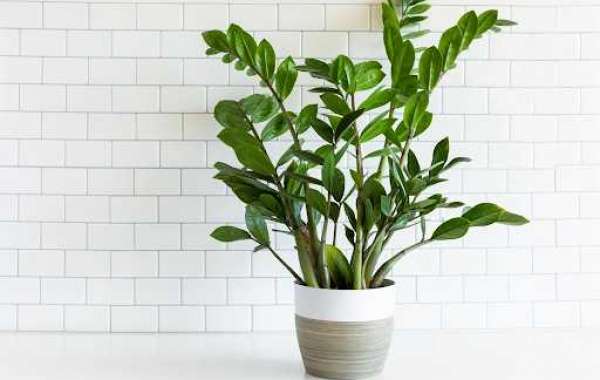Zanzibar Plants (Zamioculcas zamiifolia), also known as ZZ plants, have taken the indoor gardening world by storm in recent years. Their elegant, glossy leaves and easy-care nature make them a favourite among seasoned plant enthusiasts and beginners. If you've fallen in love with your ZZ plant and want to expand your collection or share the beauty with friends and family, propagation is the way to go.
In this comprehensive guide, we'll walk you through the art of Zanzibar plant propagation, step by step, so you can enjoy the satisfaction of growing new plants from your existing ones.
Why Propagate Your Zanzibar Plant?
Before we dive into the propagation process, let's explore why you might want to propagate your Zanzibar plant. There are several good reasons:
- Expand Your Collection: Propagation is a cost-effective way to grow more Zanzibar plants and expand your indoor garden without breaking the bank.
- Share the Love: You can gift baby Zanzibar plants to friends and family, spreading the joy of indoor gardening.
- Rejuvenate Older Plants: Propagating can help rejuvenate older or leggy ZZ plants, encouraging new growth and a fuller appearance.
Now, let's get our hands dirty and explore the step-by-step process of propagating Zanzibar plants.
Step 1: Gather Your Supplies
To successfully propagate your Zanzibar plant, you'll need a few essential supplies:
- Healthy Parent Plant: Ensure your parent ZZ plant is healthy and free from diseases or pests.
- Sharp, Clean Pruning Shears or Scissors: These will be used for cutting.
- Small Pots or Containers: You'll need containers for your new ZZ plant cuttings.
- Well-Draining Potting Mix: ZZ plants prefer a well-draining mix to prevent root rot.
- Rooting Hormone (Optional): While not necessary, rooting hormone can help expedite the rooting process.
Step 2: Choose the Right Cuttings
Selecting the right cuttings is crucial for successful propagation. Look for healthy stems with at least two or three leaflets. These leaflets will eventually grow into new branches. Make clean cuts right below the leaf node with the help of pruning shears or scissors.
Step 3: Allow Cuttings to Callus
Before planting your cuttings, it's essential to allow them to callus. This typically takes a day or two and helps prevent rotting when the cuttings are placed in the soil. You must put your cuttings in a dry or shaded spot to callus.
Step 4: Plant the Cuttings
Once your cuttings have been callused, it's time to plant them in pots or containers with well-draining potting mix. Create a hole with a pencil or stick and insert the cuttings about an inch deep. To help the soil settle around the cuttings, lightly water the area.
Step 5: Provide the Right Conditions
To encourage root growth, your cuttings need the right conditions:
- Indirect Light: Place the newly potted cuttings in a spot with indirect sunlight. Avoid the sun's direct rays since they can burn the foliage.
- Consistent Moisture: Keep the ground continuously damp but not soggy. The result of overwatering is decay.
- Warmth: ZZ plants thrive in warm environments. Ensure the room temperature is around 65-75°F (18-24°C).
Step 6: Be Patient
Propagation takes time, and it's important not to rush the process. It can take several weeks to a few months for your Zanzibar plant cuttings to develop roots and show signs of new growth. During this time, be patient and resist the urge to disrupt the cuts.
Step 7: Transplant Your New Zanzibar Plants
Once your cuttings have established roots and have grown into small plants with a few leaves, it's time to transplant them into larger pots. Use a well-draining potting mix similar to what you used for the parent plant.
Conclusion
Congratulations, you've successfully propagated your Zanzibar plant! Watching these new plants grow and thrive is a rewarding experience for any plant enthusiast. Remember that ZZ plants are known for their resilience and adaptability, making them an excellent choice for beginners and seasoned gardeners. So, whether expanding your indoor garden or sharing the beauty of Zanzibar plants or Anthurium with loved ones, propagation is a skill well worth mastering. Happy propagating!










